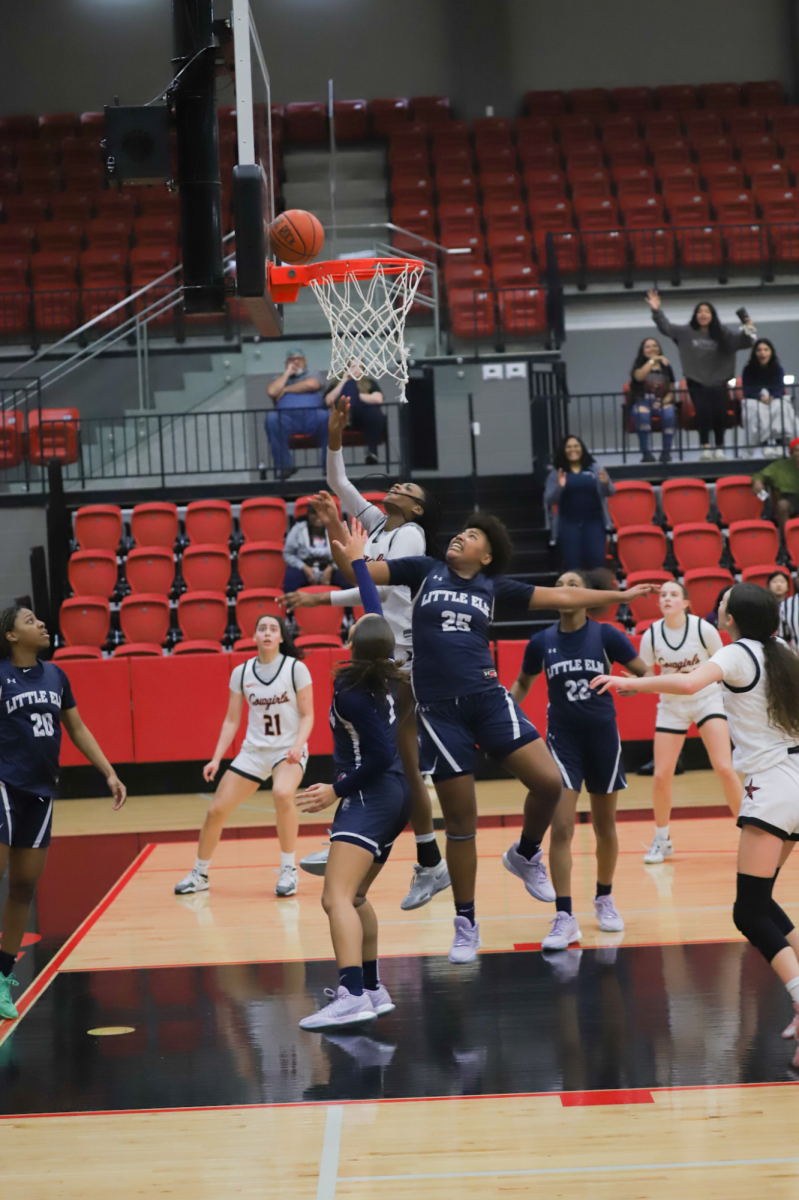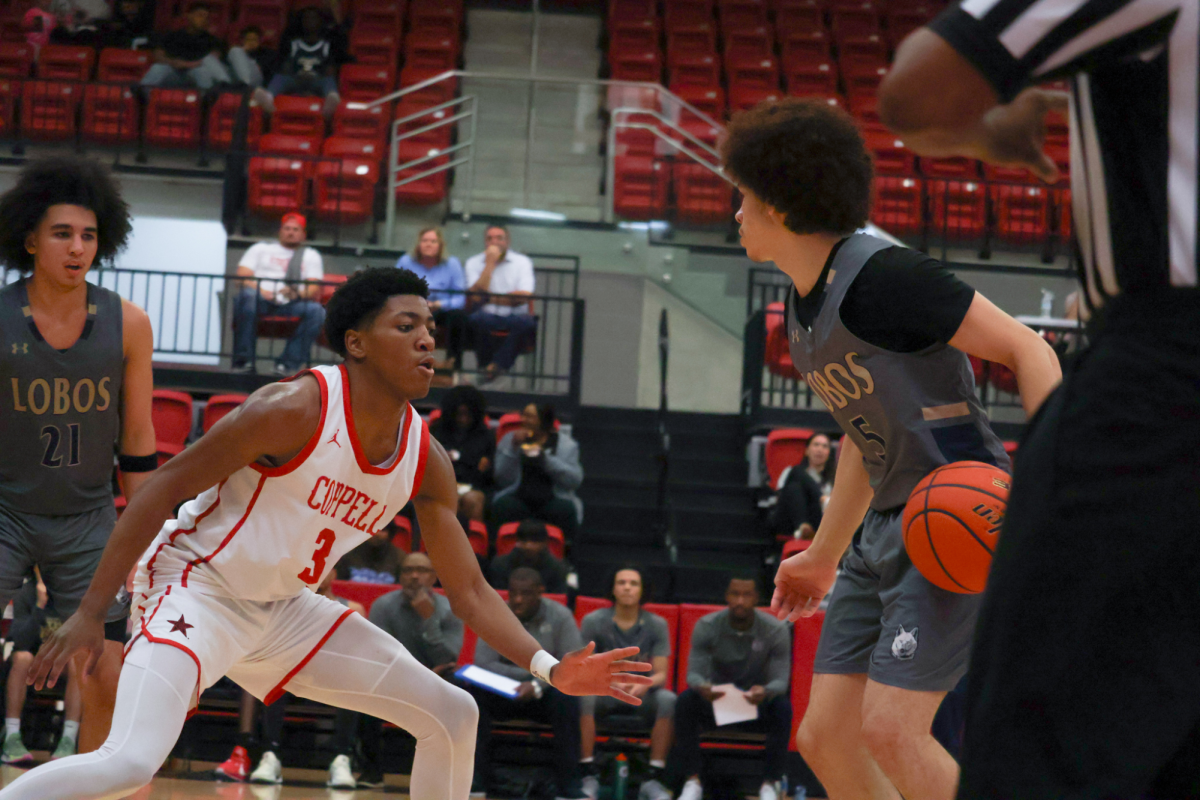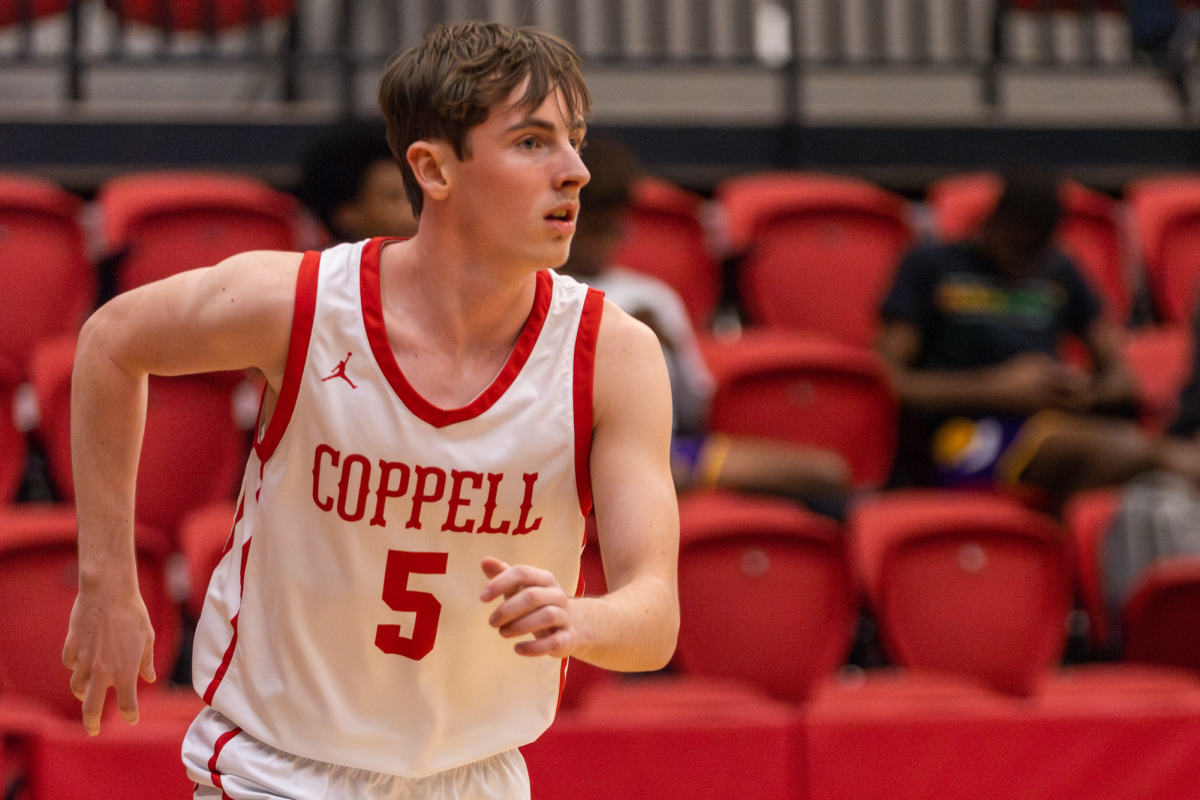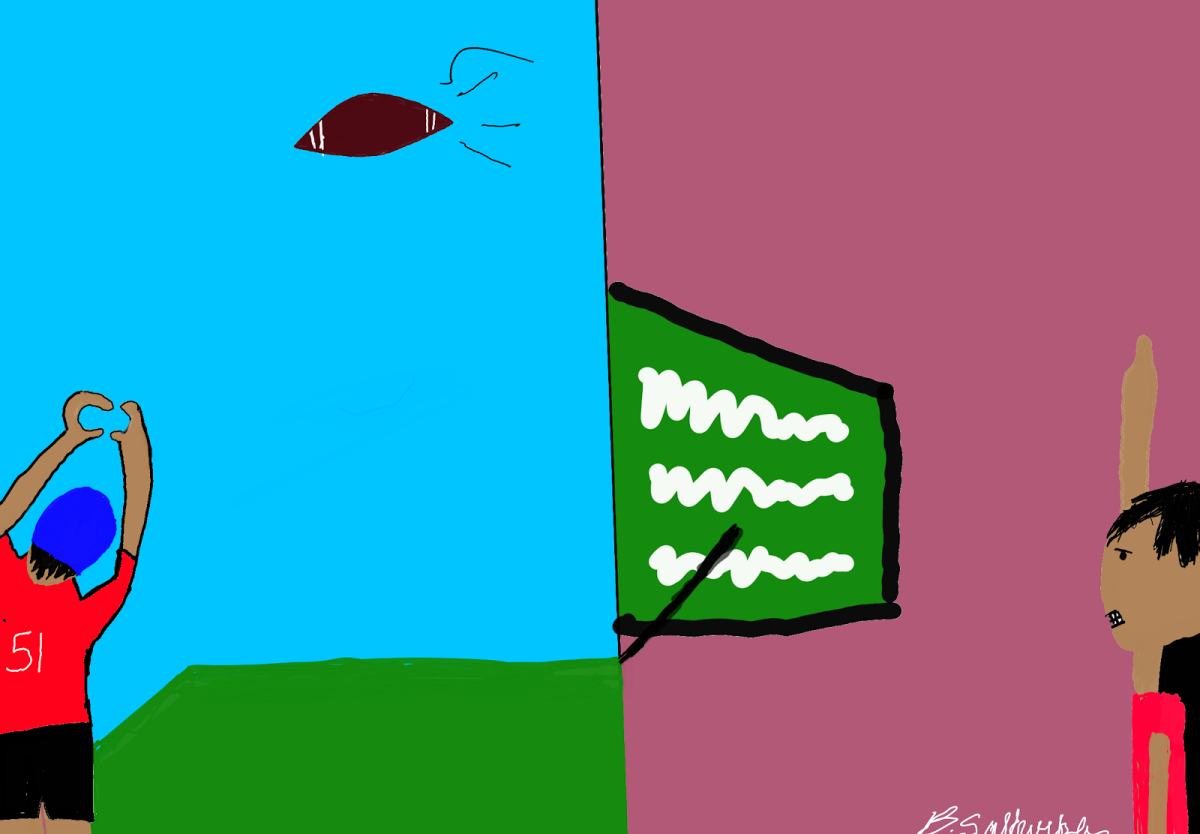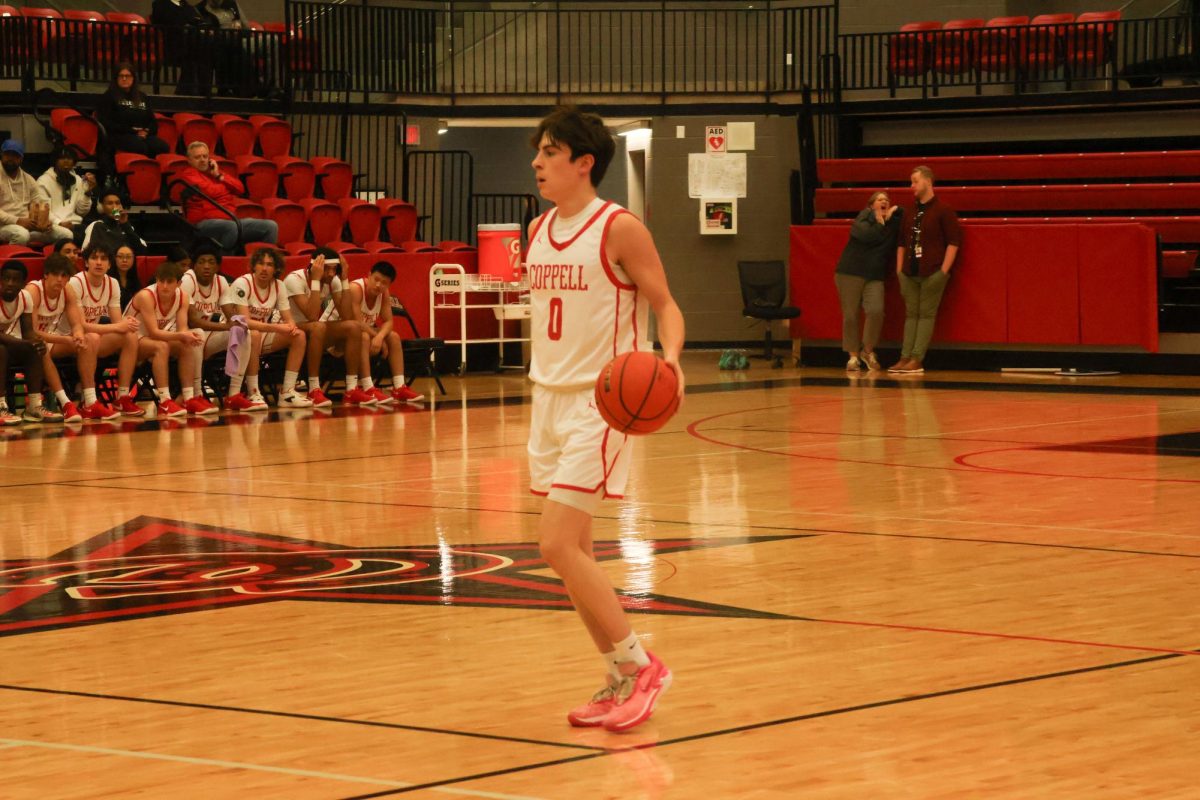by Blake Seitz
Sports Editor
Senior Chris Bigelow is accustomed to pushing himself in the water; accustomed to grueling 4 a.m. swim practices and muscle-torching 100-meter sprints in the pool. Next fall at the University of Texas, however, Bigelow’s game will change as he tackles a new aquatic sport, water polo.
It’s not much of a stretch to say Bigelow’s natural habitat is the water and not the land. He learned to swim at age 2, and joined a competitive team, the Coppell Cruisers, at age 6.
“I was raised in the water, so it has always been a part of me,” Bigelow said. “I’m basically more talented in water than on land.”
Bigelow’s experience has paid off in the last four years. He is an elected captain of the high school team, and recently broke the school record in the 100 breast stroke by 1.06 seconds.
“Chris has a great breast stroke,” varsity swimming coach Patrick Henry said. “His kick is definitely his best asset.”
Bigelow isn’t alone, either—for him, swimming runs in the family. His brother, 2008 CHS graduate Scott Bigelow, was also a swimmer and a captain for the high school team. Scott holds the school record in the 400 free relay.
Needless to say, the two brothers are close to one another. That’s why, when Scott became involved in water polo, it was almost a foregone conclusion that—one day, at least—Chris would follow.
Scott was originally attracted to the sport for its variety; water polo blends the draining exercise of lane swimming with the strategy of team sports.
“Water polo combines different aspects of many sports,” Scott said. “It has the conditioning of swimming and the teamwork of something like basketball. You get a workout, but you have fun doing it.”
Scott joined the Dallas Water Polo Club about midway through high school, and performed well enough to grab the attention of Sean Murray, the coach of the University of Texas’s club team, which recently took sixth at the national tournament. Scott, now a junior business major at UT, plays for the team as a driver and sprinter—two positions that emphasize speed and mobility over size.
While Chris focused most of his high school career on swimming, he became interested in water polo his junior year as a way to keep in shape and in the water once college came around.
“Part of my interest was because of my brother’s involvement, but I also just wanted to stay in the pool,” Chris said. “I needed to keep the chlorine flowing through my veins.”
Because Chris will attend UT next fall (also as a business major), he will play on the same team as his brother, who will be a veteran and a senior as Chris enters as a freshman.
Unlike his brother, though, Chris will not have the benefit of prior experience with water polo—he has played recreationally in the past, but never as part of a team or club. This will make Chris’s transition from lane swimming to competitive water polo that much more stark, as he is thrust into the fray as a freshman.
Fortunately, Scott will be there to help along the way. Already he is helping Chris learn the technical details of club play. This should help smooth the transition.
“I’ve been teaching Chris the terminology and the rules,” Scott said. “He’s also learning basic plays that the team runs. That will be a major advantage for him so he’ll fit right in with the team.
‘Fitting right in,’ in this case, will take more than knowledge of the sport, however. It will also require Chris, a compact and lean swimmer, to bulk up. Water polo is a highly physical—and highly dangerous—sport, requiring both speed and toughness.
Testament to this is the sport’s most famous match, ominously titled the “Blood in the Water” match (see sidebar), as well as Scott’s experience freshman year. While grappling an opposing player, a stray punch ruptured the frontal lobe in his eye. He was eventually forced to undergo surgery for the injury.
“It’s a bloody game,” Scott said. “After my eye got hurt, I was seeing double for a week. Imagine going to class and not being able to read anything.”
Chris’s phenomenal speed will be a major advantage against this, however. This, combined with the team’s strategy (as a smaller team, it emphasizes speed over power), may negate his smaller stature.
Despite potential hurdles, it would seem Chris has all the makings of a successful water polo player—blazing speed, a leadership background and a brother in the program. Others affirm this.
“His skills as a swimmer and team captain should carry Chris in whatever endeavor he goes into, water polo included,” varsity swimming coach Patrick Henry said.



